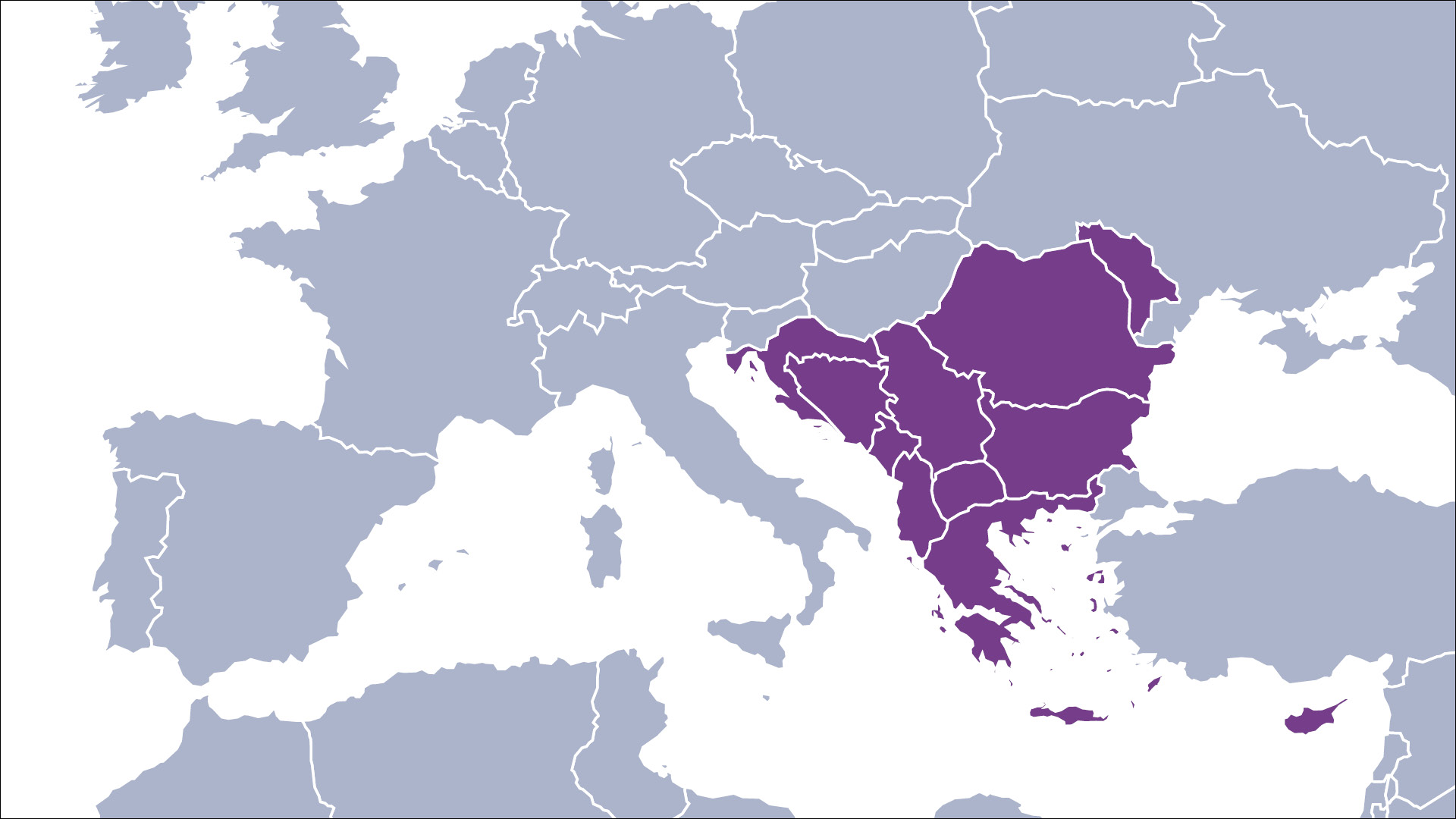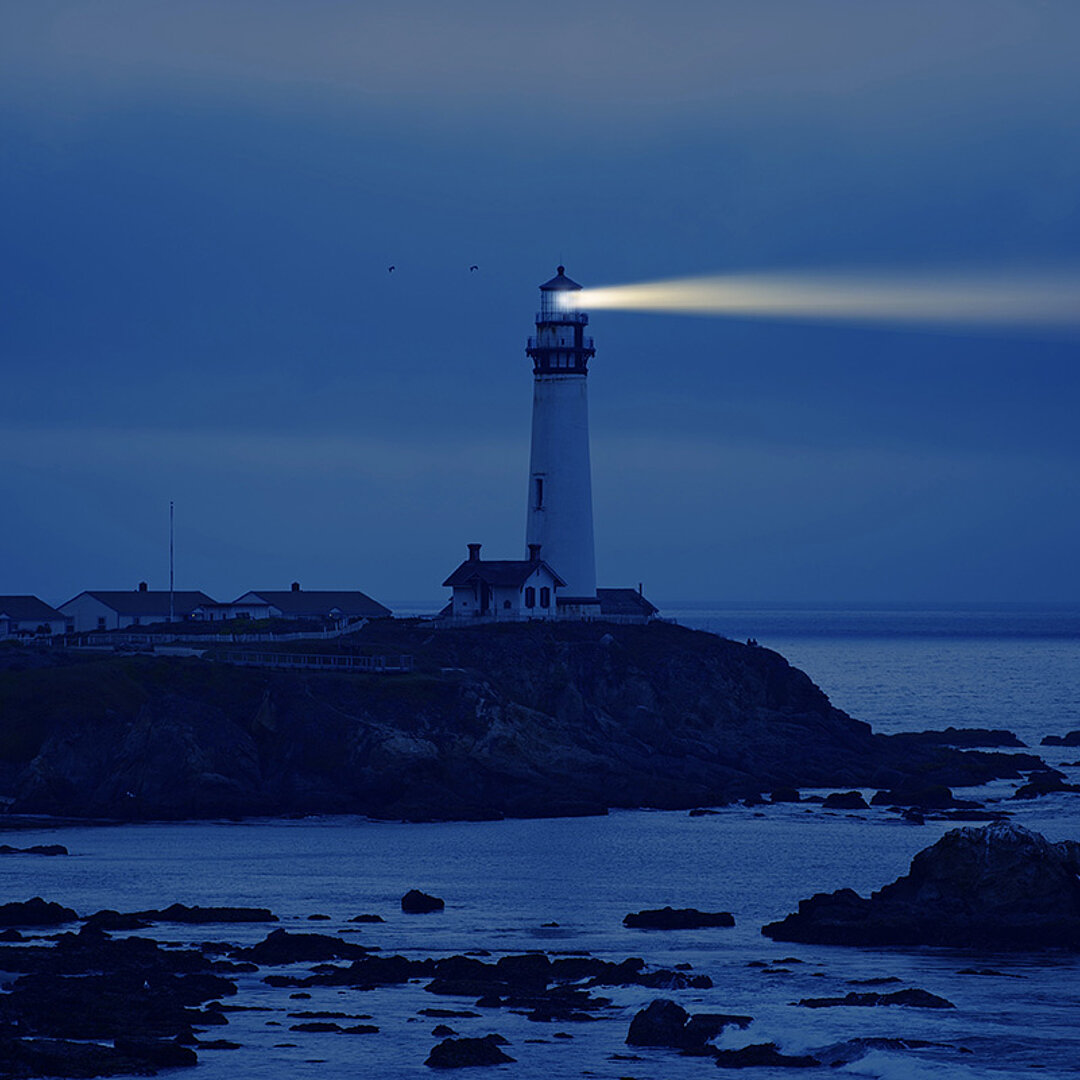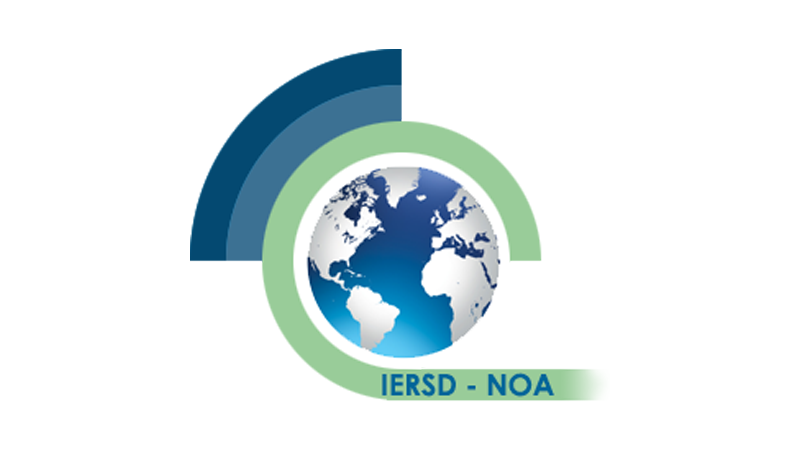This content is also available in: German
Southeast Europe
A region with a unique opportunity to decarbonise power systems while maximising security of supply.

The Southeast Europe region (SEE) comprises 10 countries on the Balkan Peninsula. The region consists of the “Western Balkans 6”, covering countries which have not yet joined the European Union (EU) but aspire to (Albania, Bosnia and Herzegovina, Kosovo, North Macedonia, Montenegro, and Serbia) and countries which are already members of the EU (Bulgaria, Croatia, Greece, and Romania). The Western Balkan 6 countries are parties to the Energy Community, an international organisation consisting of the EU and its neighbouring countries to create an integrated pan-European energy market and foster the use of renewable energy and energy efficiency.
The power systems of the SEE countries are characterised by old and emissions-intensive power plants, with predominantly state-owned energy supply monopolies. Lignite plays a significant role in the power system of the region. The SEE region suffers from high energy poverty and energy intensity (inefficient use of energy) and pronounced air pollution.
The region is at a crossroads when it comes to replacing ageing coal-based power generation. Solar and wind power still play a rather small role in SEE, despite the region’s vast potential for developing renewable energy as well as significant opportunities for enhancing energy efficiency. The joint political past of many SEE countries and the close geographical and political ties between them offer a unique opportunity to advance decarbonisation and the energy transition over the coming decade.
Agora and its partner think tanks in the region develop energy system scenarios for the SEE countries with the aim to speed up the clean energy transition and reach decarbonisation targets whilst maximising security of supply and minimising costs for consumers.




